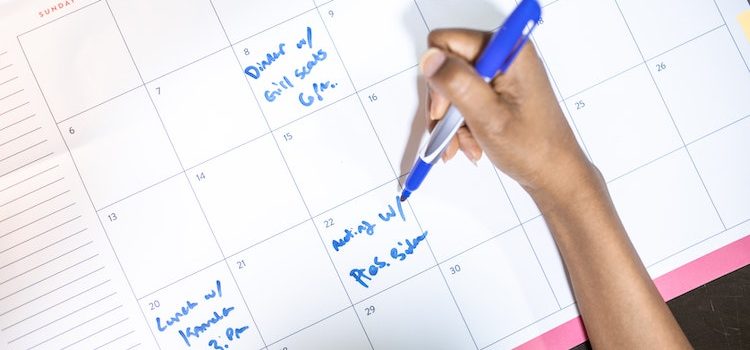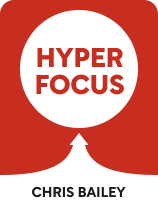

This article is an excerpt from the Shortform book guide to "Hyperfocus" by Chris Bailey. Shortform has the world's best summaries and analyses of books you should be reading.
Like this article? Sign up for a free trial here .
When should you set aside time to focus? How long should your focus sessions last?
Hyperfocus requires planning, according to productivity expert Chris Bailey. In his book Hyperfocus, he discusses scheduling focus sessions, using timers, setting deadlines, and spacing out tasks. He also writes about scheduling focus time within the context of biological and external realities.
Read more to learn when and how to schedule a time to focus.
Setting Aside Time to Focus
In order to hyperfocus, you must first plan when and for how long you will hyperfocus. As Bailey explains, planning ahead is a critical element of ensuring that hyperfocus works with not just your biology but also your external reality.
Bailey argues that your brain feels aversion to the idea of focusing on only one thing for a prolonged period. As you’ll see, planning your focus sessions in advance helps reduce this aversion.
(Shortform note: Why does your brain feel averse to the idea of focusing on one thing for a prolonged period? Bailey never makes this explicit, but he implies one reason: Hard tasks require mental energy, which your brain wants to conserve. Neuroscientists have also proposed another theory known as the “process model”: Your brain does hard tasks only because it wants a reward—and if it isn’t confident it’ll receive a reward, it loses motivation to do the hard task.)
Furthermore, planning ahead allows you to work around external factors that affect your particular situation. For example, hyperfocusing at dinner with your family is more difficult if you’re going through a particularly busy time at work and need to be available for your coworkers after-hours.
(Shortform note: By scheduling when you’ll hyperfocus in advance, you also ensure that it remains a priority. As First Things First recommends, schedule your most important tasks every week before filling the extra space with your less crucial tasks.)
So, how long should you focus, and when is it a good time to focus?
How Long to Hyperfocus
Choosing how long to focus is simple. Bailey suggests starting small: Pick a length of time that feels comfortable. It shouldn’t be too short, but it shouldn’t be too long, either. (Shortform note: If you have trouble with this, imagine that you’re training for a marathon. You wouldn’t immediately try running 26.2 miles—you’d run just a little bit longer than you normally would then slowly increase the time. Treat your cognitive endurance in the same way.)
Additionally, Bailey explains, hyperfocus works best as a daily habit. So select a duration that won’t put you off from hyperfocusing more tomorrow. As you get used to hyperfocusing, you’ll become focusing for longer periods of time, and the lengths of your hyperfocus sessions will naturally increase. (That said, Bailey also cautions against overdoing it: If you’ve been hyperfocusing regularly for a few weeks but suddenly feel intensely averse to hyperfocus, give yourself a break.)
(Shortform note: In The Talent Code, Daniel Coyle explains one reason why consistency is essential: neurologically speaking, skill development depends on the growth of myelin, the insulation around our neural circuits, and repetition increases this myelin—strengthening the neural connection. But when we let our practice lapse, the myelin decreases. So inconsistency worsens the connection and our ability to do the skill (in this case, hyperfocus).)
Bailey also recommends setting a timer to help keep you on track. Don’t feel obligated to stop when it rings if you’re in the zone. (Shortform note: While this is a useful strategy when you first start hyperfocusing, you might find it unnecessarily distracting as you continue hyperfocusing—especially if you start regularly achieving flow.)
When to Hyperfocus
Choosing when to focus is slightly more complicated, but it still involves working with both your biology and your external realities. Specifically, Bailey suggests basing your decision on three main constraints: your schedule, your energy levels, and your tasks.
Hyperfocus requires time and energy, neither of which are unlimited resources. (Shortform note: If you’re regularly low on energy, you may want to exercise more. Exercising regularly can improve your memory and thinking, which may help you focus.) One way to ensure you have both available during your hyperfocus is to schedule your hyperfocus sessions around your other personal and work commitments. For example, you might schedule fewer hyperfocus sessions during a busy holiday season. (Shortform note: Indistractable takes the idea of scheduling when you’ll focus one step further: Eyal recommends “timeboxing,” where you split up your entire day into blocks (or boxes) of time, all of which are allocated to specific activities—not just the times you focus.)
Alternatively, maximize your productivity by scheduling your hyperfocus sessions when you have the most energy. To discover what these times are, Bailey recommends keeping track of your energy levels for a few weeks. (Shortform note: Bailey calls the time you have the most energy your “Biological Prime Time,” a concept he described in his first book, The Productivity Project. To discover his, Bailey spent three weeks charting his energy levels hourly from 6 A.M. to 9 P.M. He also cut stimulants like alcohol and caffeine, varied his workout times, consumed little sugar, and woke up without an alarm.)
He also recommends manipulating your energy levels by consuming caffeine, which increases focus, endurance, and performance on many cognitive tasks. Specifically, 200 milligrams of caffeine (about one and a half cups of coffee) will give you the maximum benefits—after that, you start to get diminishing returns, and more than 400 milligrams a day will stress you out. However, caffeine also causes energy crashes—so, he recommends, be strategic about when you consume caffeine: Maximize caffeine’s benefits by consuming it just before you hyperfocus instead of just after you wake up.
(Shortform note: Bailey notes that everybody reacts differently to coffee, so take your own reaction into account. In fact, coffee has several other benefits in varying amounts. How Not to Die describes how people who had a high risk of liver disease and drank more than two cups of coffee daily showed less than half the risk of chronic liver problems, while people who drink six cups of coffee daily were 80% less likely to commit suicide. Adjust your coffee intake based on these factors as well.)
Another option is to schedule your hyperfocus sessions based on the tasks you need to accomplish. If you have a particularly cognitive demanding task that needs attention, like a presentation, that’s a good time to focus.
Schedule Your Hyperfocus
Scheduling cognitively demanding tasks in advance can also reduce the amount of mental residue they leave behind. You may recall that you don’t stop thinking about a task the minute you stop doing it. All tasks leave behind some mental residue. However, Bailey notes that there are two ways to reduce this mental residue—both of which are easier if you schedule your tasks in advance.
First, set a strict deadline. The more time you have to complete a task, the more you think about how you’ll complete the task. Even after you select a method, the other options you paid initial attention to leave behind some mental residue—so you continue to think about them, wondering if you selected the best possible option. But when you have a strict deadline, you only consider the options you can complete within the time limit. The fewer options you consider, the less mental residue a task leaves behind: You don’t continue thinking about how to complete a task better if you never started thinking about it in the first place.
(Shortform note: Bailey explains that strict deadlines make switching between tasks easier, but he doesn’t specify whether self-imposed deadlines have the same effect. They probably don’t if you always change the deadline. If you create your own deadline, consider taking another action that limits further editing of the project, like emailing it to your boss, so that you can reduce the mental residue left behind.)
Second, space out your tasks. If you wait long enough, the mental residue a task leaves behind will naturally dissipate, and you’ll forget about it. So Bailey recommends taking a break between cognitively complex tasks. This allows you to focus fully on your next task without any mental residue from your previous task to distract you. (Shortform note: Can’t space out your tasks? If you must switch tasks, write down what you’re doing and what you’ll do when you refocus on that task. This reassures your brain that you’ll come back to the task and allows it to release any residue from the task.)
(Shortform note: If you schedule your hyperfocus sessions based on what you need to accomplish, you must realistically estimate how long each task will take—but most of us are bad at this. Improve your estimates by discovering the percentage by which you underestimate task length and adjusting accordingly. To do so, divide the time you spend on a task by the time you expected to spend on a task.)
Bailey also recommends hyperfocusing on the tasks you don’t want to do, since you’re most likely to get distracted and procrastinate when doing them. If you think you’re too busy to focus on a particular task, ask yourself: Would I be too busy to do (something you like)? If not, chances are you’re avoiding focusing. (Shortform note: The tasks that are most cognitively demanding may also be the tasks you least want to do—Eat That Frog suggests that your most important and consequential task is the one you’re most likely to put off.)

———End of Preview———
Like what you just read? Read the rest of the world's best book summary and analysis of Chris Bailey's "Hyperfocus" at Shortform .
Here's what you'll find in our full Hyperfocus summary :
- Why it's just as important to learn how to manage your attention, along with your time
- Why you still feel tired no matter how many breaks you take
- Strategies for managing your attention for better productivity and creativity






